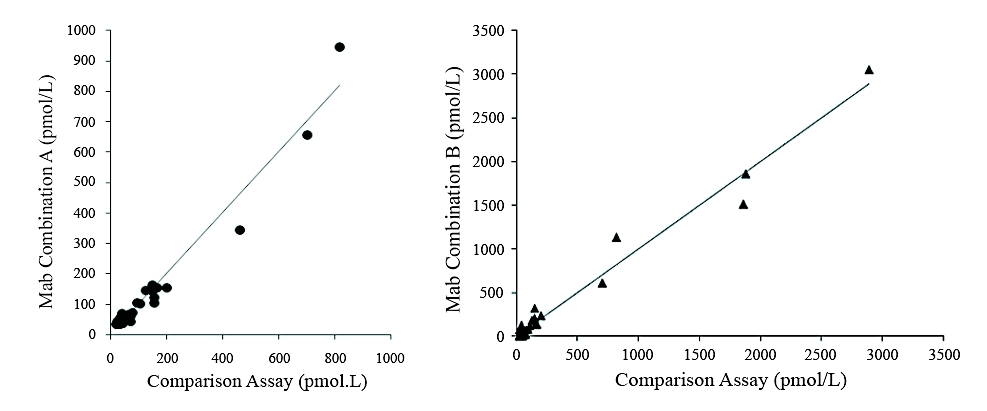Anti-Epididymal secretory protein 4 antibody
Mouse anti-human, monoclonal IgG1
Human epididymis secretory protein E4 (HE4) is a protein encoded by the WFDC2 gene in humans. This gene is expressed primarily in pulmonary epithelial cells, but has found to be expressed in some ovarian cancers. As such, HE4 serves as a serum biomarker in women with a pelvic mass to distinguish benign from malignant disease and as a tumor marker for ovarian cancer. Anti-HE4 monoclonal antibodies are highly sensitive for the detection of human HE4. They can be used for a broad range of immunoassays such as chemiluminescence immunoassay (CLIA) and rapid sandwich immunoassays.


| Catalog | Size | Price | Quantity |
|---|---|---|---|
| V100060 | 50 ug | Price | |
| V100061 | 1 mg | Price |
Physical properties
| Solvent | Water |
Antibody properties
| Host | Mouse |
| Reactivity | Human |
| Application | ELISA, CLIA |
Storage, safety and handling
| Intended use | Research Use Only (RUO) |
| Storage | Freeze (< -15 °C) |
Contact us
| Telephone | |
| Fax | |
| sales@aatbio.com | |
| International | See distributors |
| Bulk request | Inquire |
| Custom size | Inquire |
| Technical Support | Contact us |
| Request quotation | Request |
| Purchase order | Send to sales@aatbio.com |
| Shipping | Standard overnight for United States, inquire for international |
Page updated on February 22, 2026
